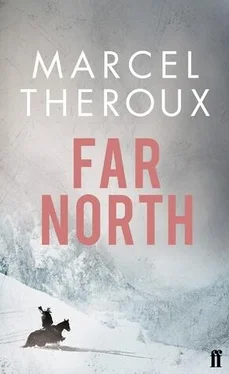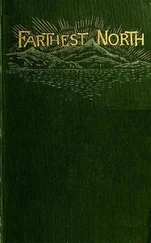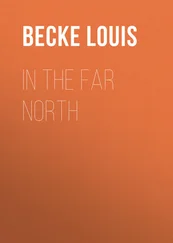The boy refused to let me near him. As much as I tried to explain that I was sorry that I’d hurt him and I wanted to help, he’d just slap my hand away. It was clear that we didn’t have a common language. There are some tongues where you can get, say, one word in five or ten, and it’s enough to make some sense of one another. We had nothing.
I gave him a pitcher of hot water on a tray, and some long tweezers, and gauze, and carbolic soap, and left him to it. And I locked him in, just to be safe.
The books from the burlap bag I put on the shelves in the living room. They were all odd sizes, so they didn’t fit into neat rows like my parents’ books. Some of them were picture books. I wondered if the boy was going to read them or burn them. I was pretty sure I knew the answer.
A burned book always makes my heart sink a little.
*
Every time I used a bullet, I made myself five more immediately. That had been my rule for a while. My bullets worked out pretty expensive, both in terms of time and the fuel it took to smelt them. It wasn’t really economical to make them in such small quantities.
But what I figured was this: you can always find more fuel if you run out, chop out some hardwood and make charcoal — even burn the pianola, god help me, if you have to — but you must never let things slide, get casual, and run low on shells.
If you can find someone who’ll trade with you, sure enough, a bullet has a market price. But say someone picks a fight with you, hunts you down with a posse of his friends. What price a bullet then? What price not to hear your gun go click on an empty chamber?
Plus, I liked it. I like what happens to the metal as it melts down. I liked to crouch over the crucible, watching the flame through the smoked-glass lenses that belonged to my father, watching the lead run like quicksilver. I liked the transformation and the cold, ugly slugs that I broke out of the sand in the moulds in the morning.
The trouble, of course, is that my shells were none too clean. If I ever get shot again, I hope it’s with a nice shiny bullet of surgical steel, not with one of my ugly things that look like something someone dropped on a farrier’s floor and carry god knows what dirt and germs in them.
After I’d made my five bullets, I carried up some food and water and a light for the spirit lamp by the boy’s bedside. He was plainly feverish. Eyes closed but flickering under the lids. Short, bristly black lashes. His blue-black hair on the pillow put me in mind of a crow’s wing. Muttering in that language of his.
The pot was empty, but I took away the boy’s stinking blue one-piece. He could have some of Charlo’s old clothes if he lived.
*
At first light I took him up some breakfast.
There was nothing yellow about his skin. It was as white as bone. Faint black hair on his sideboards, but no beard or moustache to speak of.
He’d eaten all the food I’d left him, but as I cast around for the chamber-pot he grew agitated. He was bashful. I knew then that I’d like him: I’d almost killed him, but he was shy for me to see his shit. How like a boy.
I tried to make clear as best I could in gestures that he was to stay in bed and rest. He still looked none too good. But I’d only just mucked out the horses when he appeared in the courtyard, looking even younger and smaller in Charlo’s plaid jacket and his slippers. He was unsteady on his pins, but he made his way over to the stall to watch me giving the mare her feed, and the sight of the horse seemed to please him.
‘Ma,’ he said, pointing at her.
I started to explain how I never named the animals, just called them the mare, the roan, the grey. It doesn’t seem right to give a name to something you’re going to kill and eat one day. And it goes down easier as plain horse-flesh than as a chunk of Adamski, or Daisy-May. But there was no way to make the boy understand, so from then on, the mare became ‘Ma’.
And then he pointed to himself, and the word he said sounded most of all like ‘Ping’. That’s right. Ping. Like the bell on a shop-counter. Like a button popping off your shirt. Or a snapped banjo string. Ping. I wondered what kind of heathen name that was, or if there was a Saint Ping that no one had told me about.
But Ping he was. A name’s a name. And so I introduced myself to him. I pointed to myself and I said my name. ‘Makepeace.’
He looked all quizzical, squinted up his face as if he hadn’t heard right, and he wasn’t sure if he dared say the word. So I said it again. ‘Makepeace.’
Now his face broke out in a broad grin. ‘Make a piss?’
I looked at him careful, but he wasn’t trying to poke fun at me, he just thought that was my name. And it seemed funny, since I had had some laughs on account of his name, that he had made such a mess of mine.
*
There wasn’t any point in having Ping in my home and not trusting him. I’m ornery and solitary and suspicious and that’s how I’ve stayed alive so long. The last person other than me to sleep under that roof was Charlo, and that was more than ten years earlier. But it seemed to me then, it still does now, that if you let someone in, you should let them all the way in. Whenever I rode out of the courtyard, I took the view that everyone I met was, one way or another, planning to kill or rob me. But I couldn’t live like that in my own home. I decided to trust Ping, not because I had a gut instinct about him — I didn’t know him from the oriental Adam — but because that was the only way I could live.
And yet I was still a little surprised when I rode back in at lunchtime to find my locks intact, and the firewood still stacked neatly, and the chickens pecking, and the cabbages and apples in the root cellar undisturbed. There was no sign of Ping, though, and I confess that at that moment, I felt sad at the thought that he might have left.
*
I clattered up to the second storey in my boots, hallooing on the stairs. No sign of him. I burst into Charlo’s room and was taken aback by the scene I found.
There was Ping, with a looking-glass in front of him, and my ma’s old embroidery case, and the spirit lamp burning away, and he was taking the old steel needles one by one, cauterizing them in the flame, and sticking them into the flesh of his ears.
He smiled to see me, and laughed at my consternation. His whole ear bristled like porcupine quills. It must have pained him dreadfully, but he didn’t seem put out by it. In fact, he just went right on sticking them into his ears. And when he’d done that, he put one or two in his nose, and one or two in his shoulder for good measure.
I’ve a strong stomach. But the sight of that made me come over a bit queer. Ping gave me to understand that he wasn’t crazy, that the needles were intended to do him some good for the wound in his shoulder. But what white or black magic that was, I’m afraid I can’t tell you.
PING HAD OTHER strange habits. When the arm healed, he became an earlier riser even than me, and was up in the wintry darkness in the courtyard. It took me a while to catch him at it, but I finally stole down one morning and saw him out there, dancing.
He moved awful slow and straight-up, as if there was a jug balanced on his head. Ten or fifteen minutes it went on, as he danced around the courtyard, waving his arms in the air, balancing on one leg at times, swooping down onto his haunches as well.
He didn’t seem put out that I’d seen him when he’d finished. ‘What the hell was that?’ I asked him.
‘Gong foo. Gong foo.’ He said. And that was it. He tried to show me a few steps of his gong foo, but I didn’t really take to it. It went so slowly I’d start thinking about what a fool I looked, and then pretty soon, I’d start thinking about other things, my mind wandering all over the place, thinking about Charlo, and Anna, and my ma and pa, and by then I’d have my feet all in a tangle, and Ping would be laughing at me. But it didn’t do me any harm. And to tell the truth, I had some good ideas while I was doing it. Having Ping there had given me a notion to go travelling.
Читать дальше












